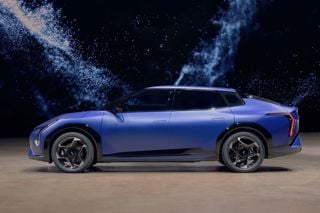The Government will launch a new consultation this summer with the intention of increasing the penalties for vehicles left idling.
It says vehicle idling is a major factor in poor air quality, particularly in areas with large numbers of waiting vehicles – such as outside schools, at taxi ranks and bus stations.
At present, local authorities are unable to impose penalties unless drivers ignore an initial warning and remain stationary for at least another minute.
The fine is £20 or £80 depending on which regulations the authority uses to enforce the law.
Chris Grayling, Transport Secretary, said: “We are determined to crack down on drivers who pollute our communities by leaving their engines running, particularly outside school gates where our children are breathing in this toxic air.
“Putting a stop to idling is an easy way to drive down dangerously high levels of pollution, reducing its impact on the environment and our health.”
A number of Councils have called for stronger powers to tackle the issue, inlcuding Westminster City Council leader Nickie Aiken who said: “Fines are our last resort but when we establish a pattern of persistent idling we need to be able to send a message.”
Aiken added fines for company vehicles, such as supermarket delivery vans, that were caught idling needed to be “a four-figure sum to be a sufficient deterrent”.
The Government says an idling car produces enough exhaust emissions to fill 150 balloons with harmful chemicals every minute.
These plans – which would represent the biggest change to the rules since 2002 – will also provide guidance to local authorities on their anti-idling powers, enabling them to enforce the law more effectively.
The consultation will also explore how to deal with repeat offenders who keep their engines running following several warnings.
These proposals are the latest move in the Government’s drive to improve air quality, which include grants to encourage the purchase of cleaner vehicles, the commitment to end the sale of new conventional diesel and petrol cars and vans by 2040 as part of its Road to Zero strategy.






















Peter - 01/07/2019 11:41
Most people I see idling outside the school opposite my house are waiting to pick up teachers at the end of the day. The reason they are idling is invariably because they are on the zig zag lines and are ready for a quick getaway if / when the traffic warden comes around (which is rarely). The issue is not idling per se but illegal parking.